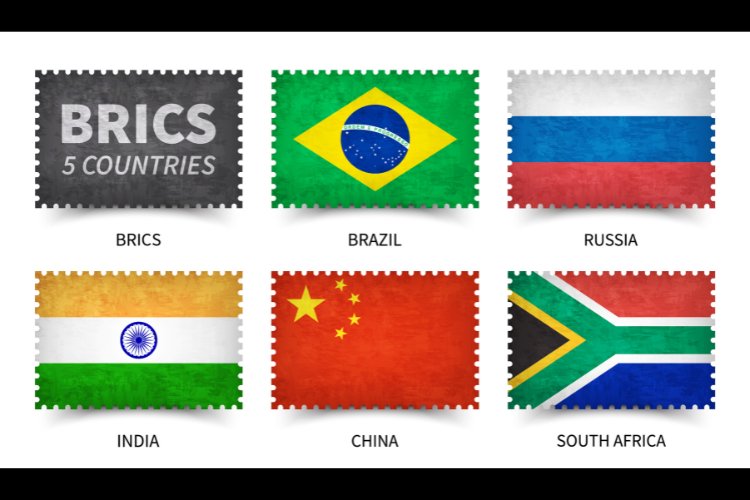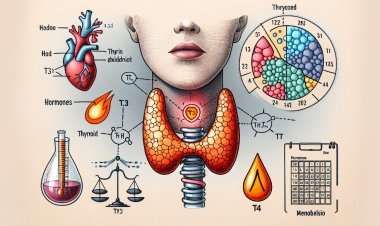BRICS - A Brief Study
Dive into the comprehensive guide on BRICS at TradeFXP blog. Understand the political, economic implications and strategic significance of BRICS nations.

BRICS - A Brief Study
Brazil, Russia, India, China, and South Africa are the five emerging economies that makeup BRICS. These countries have emerged as major players in the global economy and have been working together to increase their economic, political, and cultural influence on the world stage.
The idea of BRICS as an economic and political alliance was first proposed in 2001 by Jim O'Neill, an economist at Goldman Sachs. O'Neill argued that the economies of Brazil, Russia, India, and China were growing rapidly and would eventually become major players in the global economy. South Africa was later added to the group in 2010, making it BRICS.
Since its inception, BRICS has focused on increasing economic cooperation among its member countries. This has included efforts to increase trade and investment between the countries, as well as efforts to promote economic development and reduce poverty. Additionally, BRICS has advocated for greater representation of developing countries in international organizations, such as the United Nations, to increase its political influence.
One of the key initiatives of BRICS has been the establishment of the New Development Bank (NDB), which was created in 2014 to provide financing for infrastructure and sustainable development projects in member countries. The NDB has been seen as a potential alternative to the World Bank and International Monetary Fund, which are often seen as being dominated by developed countries.
In addition to economic and political cooperation, BRICS has also sought to increase cultural exchange among its member countries. This has included cultural festivals, academic exchanges, and other initiatives to promote mutual understanding and cooperation.
Despite its successes, BRICS has faced some challenges in recent years. Economic growth in some member countries has slowed, and political differences among the countries have sometimes led to tensions.
However, BRICS remains an important economic and political alliance, and its member countries are likely to continue to play a significant role in shaping the global economy and political landscape in the coming years.
In recent years, BRICS has been seen as an important player in international politics and economics, and its member countries have worked together to promote their economic, political, and cultural interests on the global stage.
One of the key goals of BRICS has been to increase economic cooperation among its member countries. This has included efforts to increase trade and investment between the countries, as well as initiatives to promote economic development and reduce poverty.
In 2014, BRICS established the New Development Bank (NDB), which provides financing for infrastructure and sustainable development projects in member countries. The NDB has been seen as a potential alternative to the World Bank and International Monetary Fund, which are often seen as being dominated by developed countries.
In addition to economic cooperation, BRICS has also focused on increasing its political influence on the global stage. This has included advocating for greater representation for developing countries in international organizations such as the United Nations, as well as efforts to promote peace and security in various regions around the world.
Despite its successes, BRICS has faced some challenges in recent years.
Economic growth in some member countries has slowed, and political differences among the countries have sometimes led to tensions. However, BRICS remains an important economic and political alliance, and its member countries are likely to continue to play a significant role in shaping the global economy and political landscape in the coming years.
How can BRICS influence the world economy?
BRICS is a group of five emerging economies that includes Brazil, Russia, India, China, and South Africa. Together, these countries represent a significant portion of the global economy, and as such, they have the potential to influence the world economy in several ways.
One way in which BRICS can influence the world economy is through its economic cooperation initiatives. For example, by increasing trade and investment between its member countries, BRICS can help to boost economic growth and development in the region.
In addition, through the New Development Bank (NDB), which was established by BRICS in 2014, the group can provide financing for infrastructure and sustainable development projects in member countries, which can help to further stimulate economic growth.
BRICS can also influence the world economy through its political actions and advocacy. By advocating for greater representation for developing countries in international organizations such as the United Nations, BRICS can help to shift the balance of power in these organizations and give developing countries a stronger voice in global decision-making.
Finally, BRICS can influence the world economy through its cultural exchange initiatives, which can help to promote mutual understanding and cooperation among member countries. This can lead to stronger economic and political ties, which can in turn help to boost economic growth and development in the region.
Overall, BRICS has the potential to significantly influence the global economy through its economic cooperation, political actions, and cultural exchange initiatives.
Can BRICS nations form their common digital currency?
The BRICS nations (Brazil, Russia, India, China, and South Africa) can form their common digital currency. There have been discussions about the possibility of creating a digital currency for BRICS for some time.
One reason for this interest is that a common digital currency could potentially help to facilitate trade and investment among the BRICS nations. By using a digital currency that is accepted in all member countries, businesses and individuals could more easily conduct transactions across national borders, which could help to boost economic cooperation and integration in the region.
In addition, a common digital currency for BRICS could potentially provide an alternative to existing international currencies, such as the US dollar, which are often seen as being dominated by developed countries.
A digital currency for BRICS could give the group more control over its monetary policy and financial systems, and could potentially help to reduce the influence of other countries on the region.
However, creating a common digital currency for BRICS would likely be a complex and challenging process, and would require the cooperation and coordination of all member countries. It would also require the development of appropriate infrastructure and regulatory frameworks to ensure the security and stability of the currency.
Overall, while the BRICS nations can form their common digital currency, it would likely be a significant undertaking that would require careful planning and coordination.
Conclusion about BRICS
In conclusion, BRICS is a group of five emerging economies that includes Brazil, Russia, India, China, and South Africa. These countries have a combined population of over 3 billion people and represent a significant portion of the global economy. BRICS has focused on increasing economic cooperation among its member countries, as well as increasing its political and cultural influence on the global stage.
One of the key initiatives of BRICS has been the establishment of the New Development Bank (NDB), which provides financing for infrastructure and sustainable development projects in member countries. In addition, BRICS has advocated for greater representation for developing countries in international organizations such as the United Nations and has worked to promote cultural exchange among its member countries.
Despite its successes, BRICS has faced some challenges in recent years, including slower economic growth in some member countries and political tensions. However, BRICS remains an important economic and political alliance, and its member countries are likely to continue to play a significant role in shaping the global economy and political landscape in the coming years.
To join our Hunter AutoBot Trading Program CLICK HERE
Why do you need to be with TradeFxP? CLICK HERE
All About TradeFxP's Hunter Ai EA Autobot CLICK HERE
To read more interesting articles CLICK HERE
To contact me
abe@tradefxp.com Phone: +44 7441 44 3348
Skype: abetrex www.tradefxp.com
Download this article as PDF - Attached



 admin
admin 










